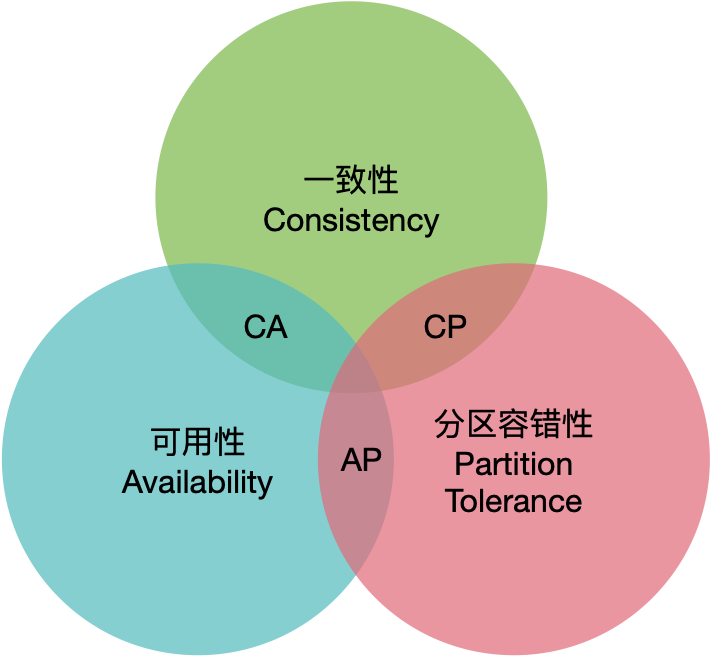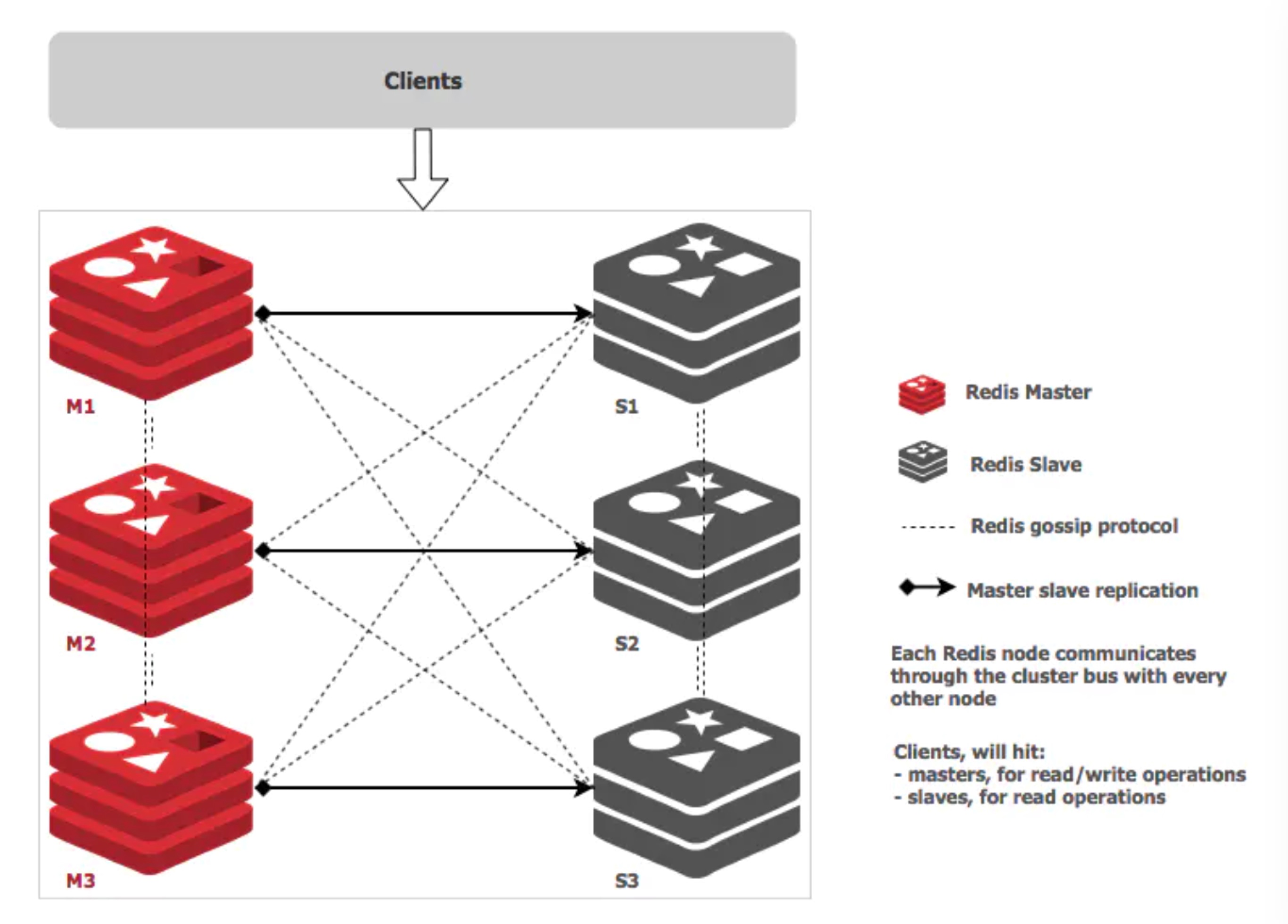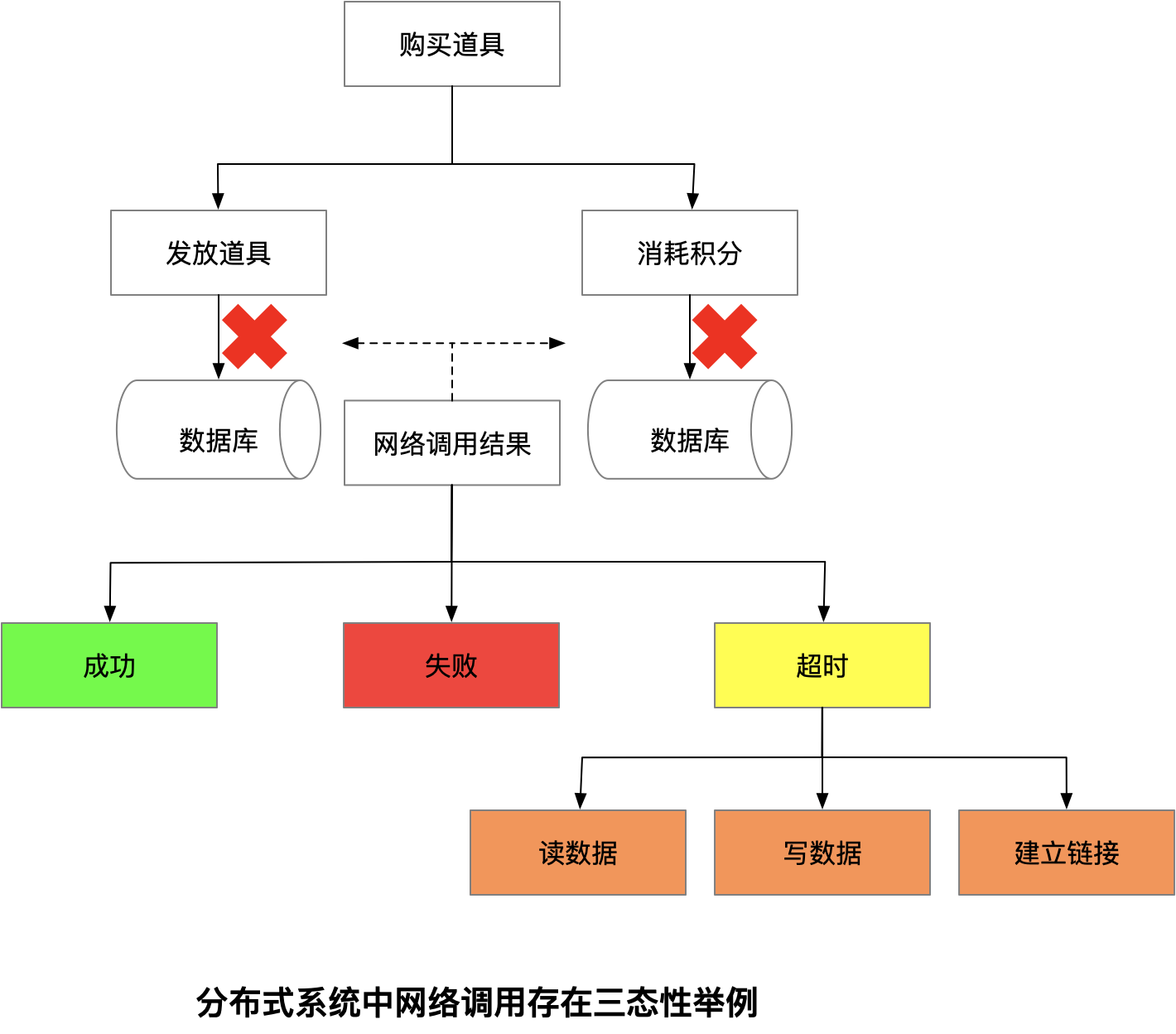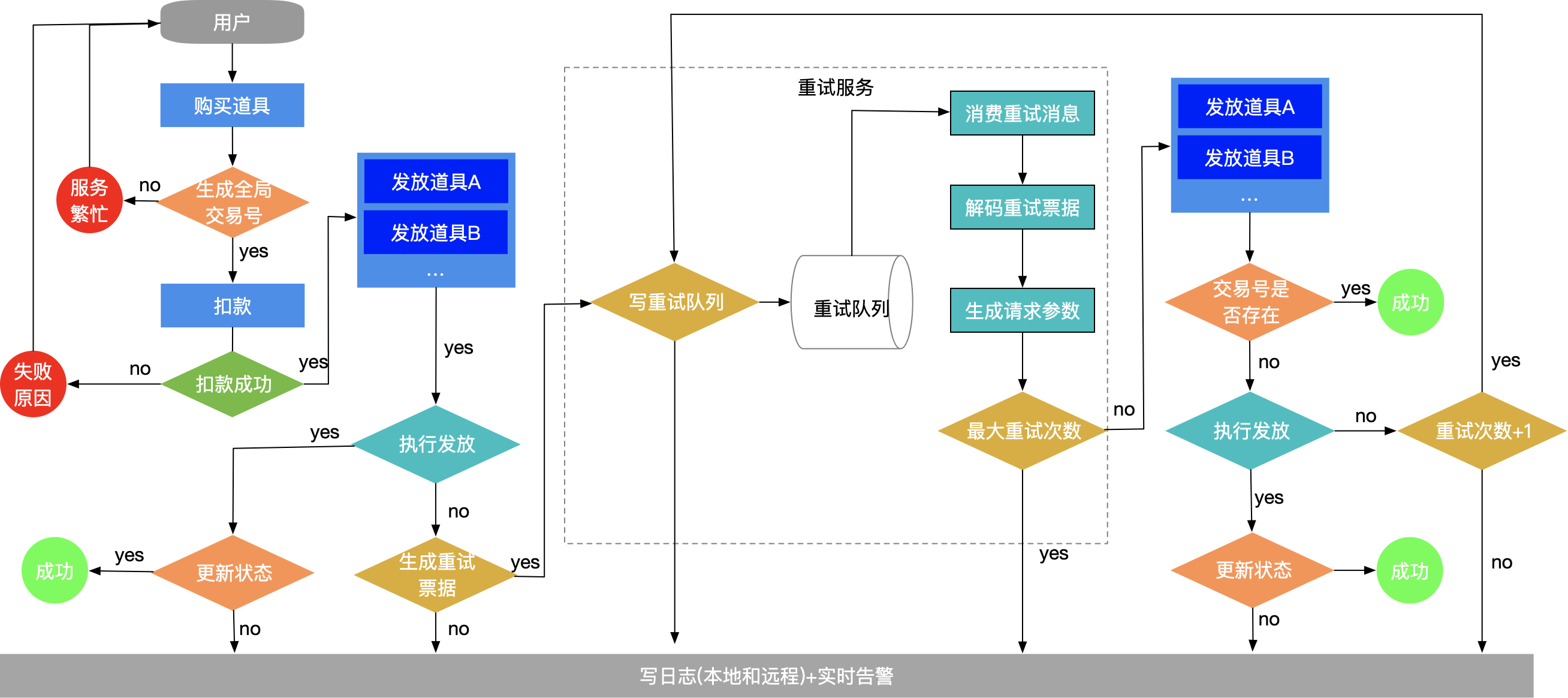分布式和CAP讨论
CAP定理
简介
一个分布式系统,不可能同时满足CAP
- 一致性:在写操作之后,所有节点都返回最新的值。
- 可用性:所有节点收到请求,都必须给出响应。
- 分区容错性:无法保证所有节点同时更新,区间通信可能失败。

数据模型
- 分散式机制将元数据存储在部分或者所有节点上,不同节点之间进行不断的通信来维护元数据的变更和一致性
- 集中式是将集群元数据集中存储在外部节点或者中间件上

优缺点
- 集中式数据更新实效性好,但Zookeeper节点压力较高
- 分散式数据更新有一定滞后,但分散了请求压力
算法
- 分散式: Paxos、Raft 和 Gossip。(Paxos 和 Raft 等都需要全部节点或者大多数节点(超过一半)正常运行,整个集群才能稳定运行,而 Gossip 则不需要半数以上的节点运行)
etcd与raft协议
逐步补充
redis与gossip协议
gossip
Gossip 协议又称 epidemic 协议(epidemic protocol),是基于流行病传播方式的节点或者进程之间信息交换的协议,在P2P网络和分布式系统中应用广泛,它的方法论也特别简单:
x在一个处于有界网络的集群里,如果每个节点都随机与其他节点交换特定信息,经过足够长的时间后,集群各个节点对该份信息的认知终将收敛到一致。
- 特定信息: 一般就是指集群状态、各节点的状态以及其他元数据等
- Gossip 协议的最大的好处是,即使集群节点的数量增加,每个节点的负载也不会增加很多,几乎是恒定的。这就允许 Redis Cluster 或者 Consul 集群管理的节点规模能横向扩展到数千个。
redis集群实现
集群示意图

关键组件
键分布模型
- 键空间被分割为 16384 槽(slot),事实上集群的最大节点数量是 16384 个。(然而建议最大节点数量设置在1000这个数量级上)
- 把键映射到哈希槽的算法: CRC16
键哈希标签
- 计算哈希槽可以实现哈希标签(hash tags)
- 只有在第一个 { 和它右边第一个 } 之间的内容会被用来计算哈希值
- 比如foo{bar}{zap} ,会用bar去计算哈希槽
集群节点属性
每个节点都有一个唯一的名字。节点名字是一个十六进制表示的160 bit 随机数。
节点会把它的ID保存在配置文件里,以后永远使用这个ID,只要这个节点配置文件没有被系统管理员删除掉。
每个节点都有其他相关信息是所有节点都知道的:
- 节点的 IP 地址和 TCP 端口号。
- 各种标识。
- 节点使用的哈希槽。
- 最近一次用集群连接发送 ping 包的时间。
- 最近一次在回复中收到一个 pong 包的时间。
- 最近一次标识节点失效的时间。
- 该节点的从节点个数。
- 如果该节点是从节点,会有主节点ID信息。(如果它是个主节点则该信息置为0000000…
使用 CLUSTER NODES 命令可以获得以上的一些信息
xxxxxxxxxx$ redis-cli cluster nodesd1861060fe6a534d42d8a19aeb36600e18785e04 127.0.0.1:6379 myself - 0 1318428930 1 connected 0-13643886e65cc906bfd9b1f7e7bde468726a052d1dae 127.0.0.1:6380 master - 1318428930 1318428931 2 connected 1365-2729d289c575dcbc4bdd2931585fd4339089e461a27d 127.0.0.1:6381 master - 1318428931 1318428931 3 connected 2730-4095集群拓扑结构
Redis 集群是一个网状结构,每个节点都通过 TCP 连接跟其他每个节点连接
在一个有 N 个节点的集群中,每个节点都有 N-1 个流出的 TCP 连接,和 N-1 个流入的连接。 这些 TCP 连接会永久保持,并不是按需创建的。
集群处理具体流程: Redis 集群规范
gossip协议消息类型(cluster.h)
/* Message types. * * Note that the PING, PONG and MEET messages are actually the same exact * kind of packet. PONG is the reply to ping, in the exact format as a PING, * while MEET is a special PING that forces the receiver to add the sender * as a node (if it is not already in the list). *//* Ping *//* Pong (reply to Ping) *//* Meet "let's join" message *//* Mark node xxx as failing *//* Pub/Sub Publish propagation *//* May I failover? *//* Yes, you have my vote *//* Another node slots configuration *//* Pause clients for manual failover *//* Module cluster API message. *//* Pub/Sub Publish shard propagation *//* Total number of message types. */
扩展到业务场景
CAP一般讨论分布式存储一致性问题。扩展到经典业务场景,比如分布式系统中,购买后发道具:购买成功后发放5个道具,用户查询领取情况,保证最终发放成功。
分布式系统中,调用可能出现的3种状态

解决方案
对于这个异步场景来说,应优先保证可用性和分区容错性,确保数据最终一致性即可
- 可用性:用户查询到不同节点,都需要有合理响应
- 分区容错性:发放道具可能失败
- 一致性:查询到所有成功领取的道具
解决
- 引入重试服务和订单号机制,分别确保最终成功和幂等性(不会重复执行)

参考
一万字详解 Redis Cluster Gossip 协议